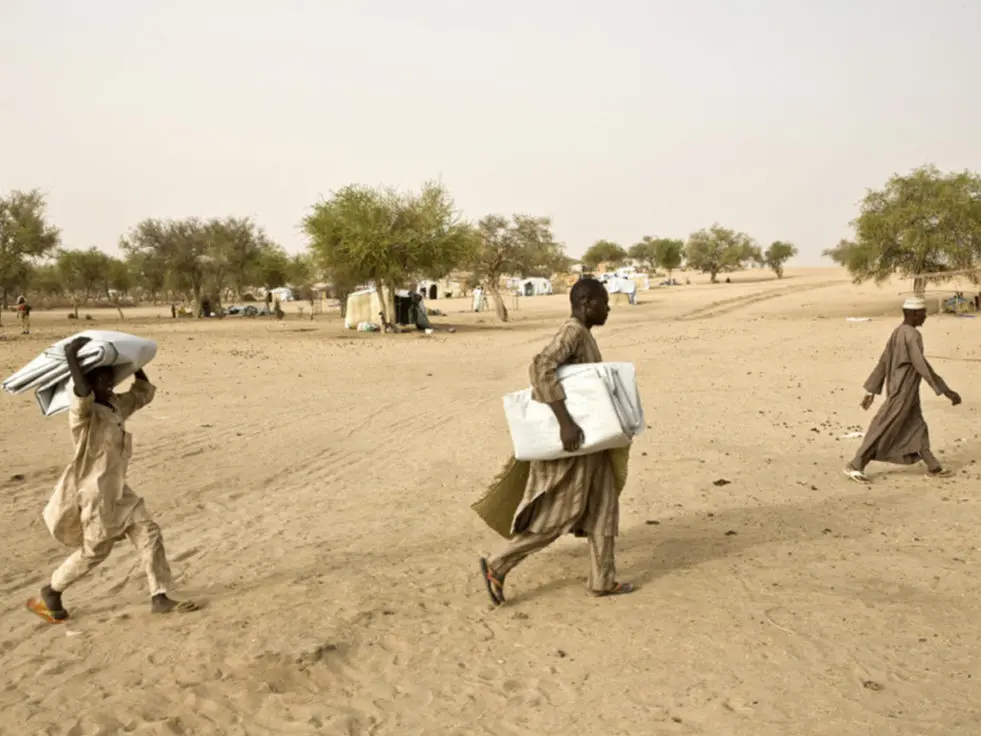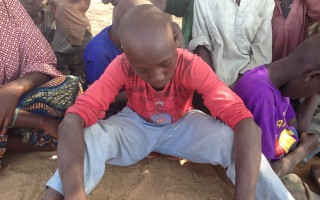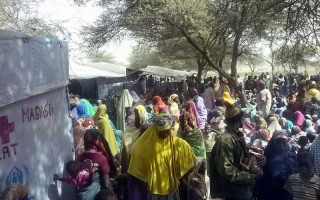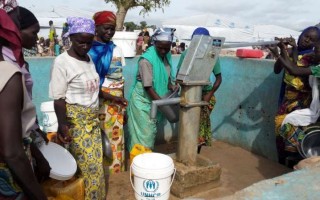
Nigerian refugees carry plastic sheeting to cover shelters at Sayam Forage refugee camp in Diffa, Niger, May 2016 © UNHCR/Hélène Caux
This is a summary of what was said by UNHCR spokesperson Babar Baloch – to whom quoted text may be attributed – at today’s press briefing at the Palais des Nations in Geneva.
More than 40,000 people have now been forced to cross from northwest Nigeria into Niger as a result of an upsurge in violent attacks on civilians over the last ten months.
The escalating violence in the Nigerian states of Sokoto, Zamfara and Katsina – violence by groups other than Boko Haram – has led to a new humanitarian emergency in Niger’s border regions. Nigerian refugees continue to arrive in more than 50 villages in the departments of Guidan Roumji, Guidan Sori and Tibiri. On September 11 alone, more than 2,500 people fled when civilians were targeted by armed groups on the Nigerian side. As the security situation continues to deteriorate in Sokoto State, we are expecting more refugees to arrive in Niger.
See also: Violent attacks in Nigeria drive thousands of refugees into Niger
People are seeking safety from indiscriminate attacks unleashed by organized armed groups on men, women and children alike. There have been frequent reports of kidnappings, torture, extortion, murder, sexual violence and destruction of houses and property.
UNHCR, the UN Refugee Agency, is working with local authorities and its humanitarian partners to assist refugees, many of whom are arriving traumatized and with few belongings.
Fleeing villagers report the attackers to be well-equipped and well organized, and that some refugees have been chased over the border into Niger. Some village chiefs in Niger are also reported to have been targeted and killed by the armed groups.
Refugees, many of them women and children, are arriving with gruesome details of extreme violence. A 14 year-old refugee told UNHCR staff that attackers killed more than 50 people in her village, including her family members. Her father and two young sisters, aged three and four, were shot dead, while her five year-old brother was killed with a machete. Attackers stole all her family’s belongings.
The attackers, who take some people hostage, let others go free to warn the rest of the community of the consequences if they do not pay ransoms and if they do not flee their homes.
UNHCR is rushing assistance to the area and registering the new arrivals with six mobile units in the border regions. We have opened a new field office and deployed emergency staff and resources to respond to the humanitarian needs. A 747 cargo plane carrying 98 metric tonnes of relief items from UNHCR, landed in Niamey on Monday (September 23). Items were being distributed to the refugees and host communities welcoming them into their villages.
Most refugees are in villages close to the border which are prone to incursions from armed groups. UNHCR is working with local authorities to relocate refugees to ten villages identified as being in safer locations.
But more resources are urgently needed to support refugees and their hosts. An inter-agency refugee response plan launched this week seeks US$ 35.5 million until the end of this year. So far we have 6 percent of the required funding.
For more information on this topic, please contact:
- In Niamey, Laurence Bron, bronl@unhcr.org, + 227 80 09 71 63
- In Niamey, Benoit Moreno, morenob@unhcr.org, + 227 92 19 24 17
- In Geneva, Babar Baloch, baloch@unhcr.org, +41 79 513 9549
Originally published on UNHCR on 27 September 2019





